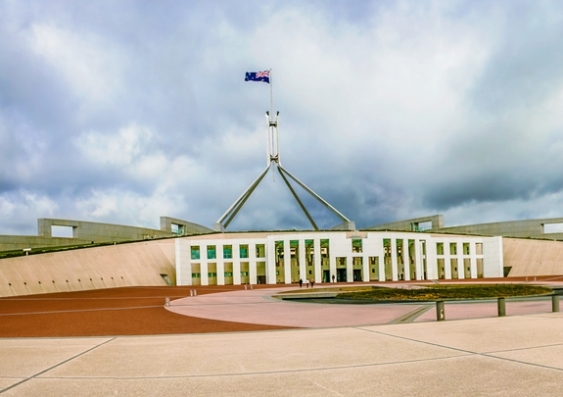Single anti-corruption body key to holding politicians accountable
A national anti-corruption body is needed to help keep politicians and public servants accountable, George Williams writes.
A national anti-corruption body is needed to help keep politicians and public servants accountable, George Williams writes.

OPINION: It is often alleged that a federal parliamentarian has acted corruptly by misusing their entitlements or breaching basic standards. Unfortunately, such accusations may be ignored, or never properly investigated. This might be because the rules are lax, or non-existent. Sometimes, no penalty is imposed, even when the actions would be grounds for dismissal for a person in any other job.
The most recent allegations relate to government MP Stuart Robert. It is said he defended Gold Coast property developer Sunland in Parliament, and put an Australian’s life at risk, in a speech largely penned by the company’s lobbyist. Sunland then donated thousands of dollars to the Coalition.
How might this matter be dealt with? It is hard to see that there has been any breach of Australia’s political finance laws. They are wide open to receiving money in return for influence and favour. It is also hard to see that the police can get involved given that no other offence may have been committed.
At best, Robert might be investigated by Parliament’s privileges committee. But that is a body composed of other politicians, most of whom are government members determined to maintain the Coalition’s wafer-thin majority. So the community interest in seeing the matter resolved may be trumped by political self-interest.
Too often this is the result of Parliament investigating its own members. The two main parties use such processes to shield their members from scrutiny. Allegations can take years to resolve, often until public attention has moved on, or the MP in question has left Parliament.
A good example is the Craig Thomson saga, which spanned four years and two Parliaments. In 2012, a Fair Work Australia report found the then Labor MP had committed 156 breaches of workplace laws while a union official, including spending almost $6000 on escort services using union credit cards.
Thomson responded in Parliament by denying these findings categorically, blaming his enemies in the Health Services Union. In the face of public pressure, Parliament began to investigate, but the inquiry was suspended until the conclusion of judicial proceedings. In 2014, Thomson was convicted of theft and in 2015 was ordered to repay his union $231,000.
In March this year, Parliament’s privileges committee found Thomson had deliberately misled the house. He could have been punished by imprisonment of up to six months or a fine of up to $5000. Instead, with the heat gone out of the debate, Parliament reprimanded him.
Such examples reveal weaknesses in the ability of Parliament to hold its members to account. Allegations, where they are investigated, may not be resolved in a and public service accountable timely manner, and the punishment may be a slap on the wrist.
The system can enable politicians to be a law unto themselves, and to shield each other from scrutiny and the consequences of their wrongdoing. It is no surprise that the effect is to erode confidence and trust in our institutions.
To fix this, Parliament should adopt a uniform code of conduct reflecting community expectations of how parliamentarians should behave. All accusations of misconduct should be investigated by an independent parliamentary integrity commissioner. The commissioner should be able to recommend fines or suspension from Parliament. Even these mechanisms will not be enough. Parliament would still be left to decide whether to impose the recommended penalty.
Some actions will also never come to light because there is no systematic way of identifying wrongdoing. A survey by the Australian Public Service Commission reported that, in the past year, more than 3000 federal public servants had seen inappropriate or illegal behaviour at work, including nepotism, blackmail, bribery, fraud and collusion with criminals.Yet only a third reported this to their supervisors. The larger group said they were unsure how to report corruption.
This is strong evidence that existing systems are not working. To respond to these problems, the Federal Parliament must follow the lead of the states, each of which has an independent anti-corruption commission.
A single, national anti-corruption body must be charged with investigating and exposing wrongdoing by federal parliamentarians and government employees.
Professor George Williams is Dean of Law at UNSW.
This article was first published in the Sydney Morning Herald.